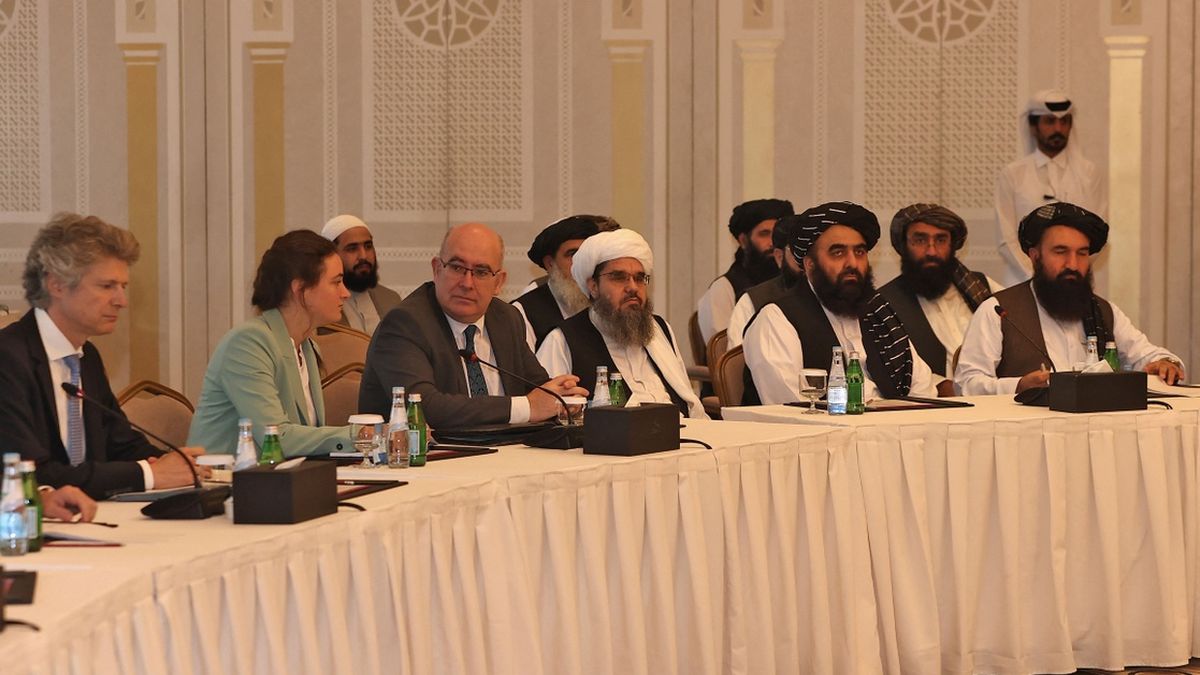Acting Foreign Minister Amir Khan Muttaqi told Western diplomats in Doha that “weakening the Afghan government is not in anyone’s interest because its negative effects will directly affect world security and the country’s economic migration.”
The radical Islamist Taliban toppled the US-backed Afghan government in August after a two-decade conflict to enforce its rigid interpretation of religious law.
But his attempts to stabilize Afghanistan, which faces attacks from rival extremist group Islamic State-Khorasan (IS-K), have been hit by international sanctions, while banks are without money and public employees do not receive a salary.
According to the statement, Muttaqi said at the Doha meeting: “We urge the countries of the world to end sanctions and allow banks to operate normally so that aid groups, organizations and the government can pay salaries with their own reserves and the international financial assistance “.
European countries fear that a collapse in the Afghan economy will lead to a massive outflow of migrants putting pressure on neighboring countries, such as Pakistan and Iran, and eventually the EU borders.
The United States and the EU said they are prepared to support humanitarian initiatives in Afghanistan, but they are concerned about giving direct assistance to the Taliban without guarantees that they will respect human rights, especially women.
The EU pledged 1 billion euros ($ 1.16 billion) of humanitarian aid to Afghanistan on Tuesday, during a virtual G20 summit.
But the president of the European Commission (executive body of the EU), Ursula von der LeyenHe recalled that this aid “is for the Afghan people and the country’s neighbors who have been the first to help them,” so it should not pass through the hands of the Taliban.
This Islamist movement assures that it does not represent a threat to human rights, nor to women.
Afghan girls, however, still do not go back to school, except in the cities of Kunduz and Mazar-i-Sharif, and most women did not return to work.
Near Herat, in western Afghanistan, insurgents have already applied harsh punishments against suspected criminals, fueling fears that the Taliban will again apply a brutal and fundamentalist regime like the one established between 1996 and 2001.
David William is a talented author who has made a name for himself in the world of writing. He is a professional author who writes on a wide range of topics, from general interest to opinion news. David is currently working as a writer at 24 hours worlds where he brings his unique perspective and in-depth research to his articles, making them both informative and engaging.




